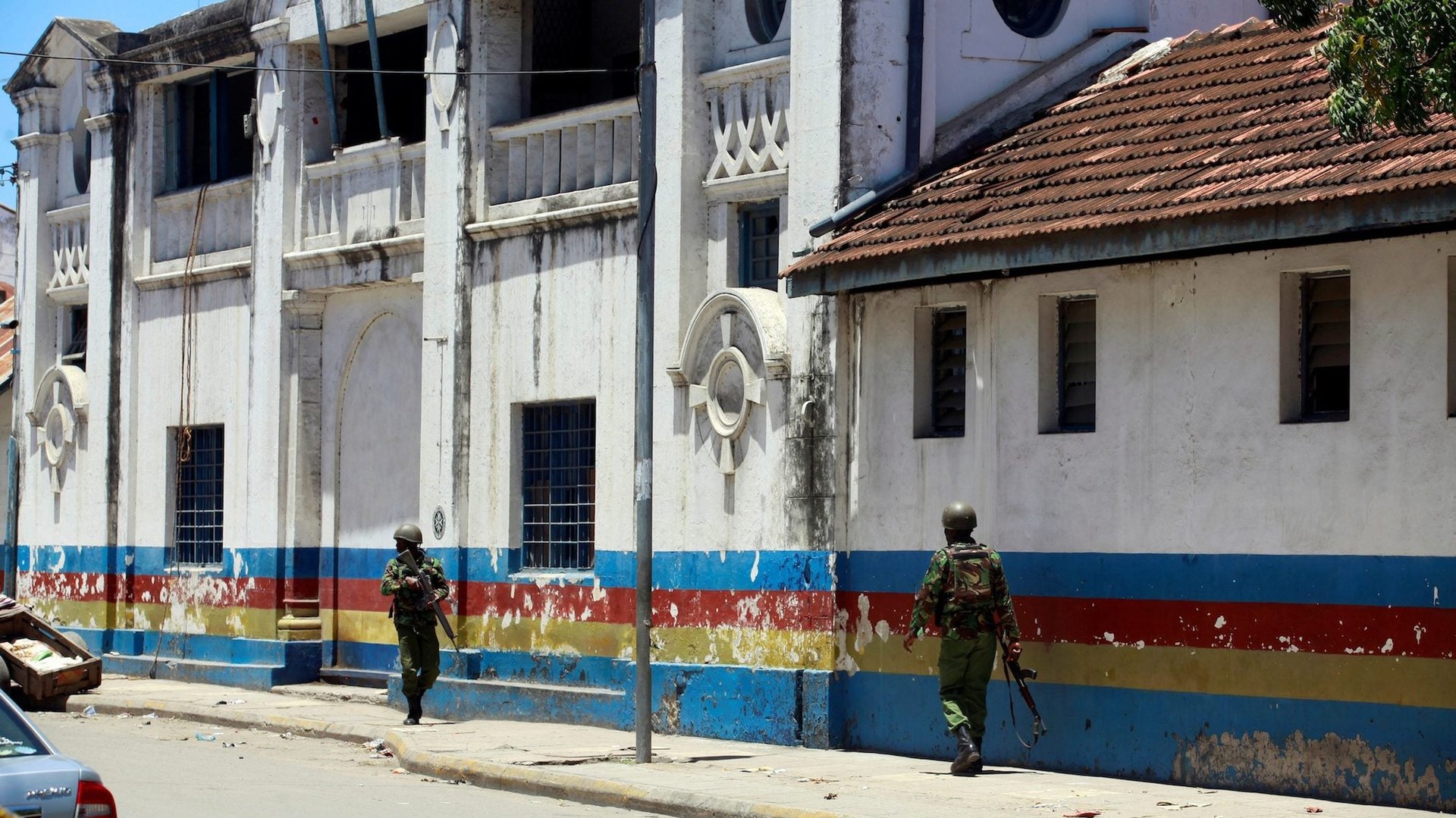On the anniversary of the 9/11 attacks, three veiled women tried to bomb a Kenyan police station
Three women in Kenya attacked a police station in the port city of Mombasa, stabbing one officer and setting the station on fire on Sunday (Sept. 11). All three were shot dead by police.


Three women in Kenya attacked a police station in the port city of Mombasa, stabbing one officer and setting the station on fire on Sunday (Sept. 11). All three were shot dead by police.
The three were wearing buibui robes, often worn by Muslim women in East Africa. They entered Mombasa’s central police station claiming their cellphones had been stolen. One then pulled out a knife from her robe while another threw a petrol bomb. Police also recovered an undetonated suicide vest from one of the women.
“The station caught fire. Police shot the three and killed them. Two officers are in hospital with wounds. Presumably it is a terror attack,” Patterson Maelo, the police commander for Mombasa County, told reporters. Evans Achoki, commissioner of Mombasa County said the attack was proof that “terror is mutating” in Kenya.
No group has claimed responsibility for the attack so far. Three people found at the home of one of the attackers have been arrested.
The use of female attackers is not new in Kenya. British national Samantha Lewthwaite, also known as the “white widow,” is believed to have helped the Somalia-based Islamist group al-Shabaab launch attacks along Kenya’s coast as well as in Nairobi. In May, two women were arrested on suspicion of planning a biological attack.
According to a recent report by the Intergovernmental Authority on Development (IGAD), the eight-country East African trade bloc, al-Shabaab has begun using young women and girls (pdf), who arouse less scrutiny when traveling between Kenya and Somalia, as recruits. (Authorities also worry that the Islamic State has begun recruiting in Kenya and Somalia.)
If the attack is indeed by al-Shabaab, it would mark the group’s return to a major Kenyan city. Al-Shabaab had recently limited its targets to border towns like Mandera, leading to speculation that the group had been weakened. In the past it has attacked Kenyan sites like Nairobi’s Westgate Mall and Garissa University in retaliation for Kenya’s contribution to the African Union forces fighting the Islamist group in Somalia. But last year the number of attacks by militants in Kenya fell steeply; there were just 46 attacks in 2015, according to the UK-based consultancy Maplecroft, as against 115 the year before.